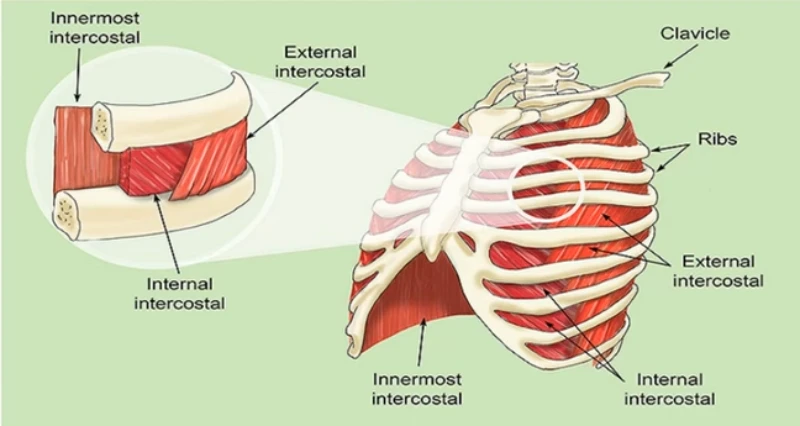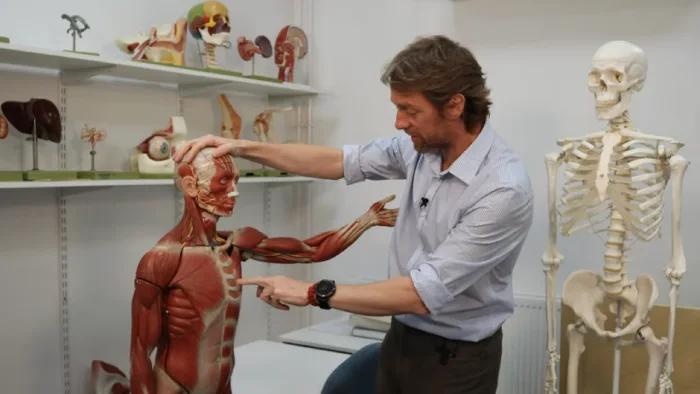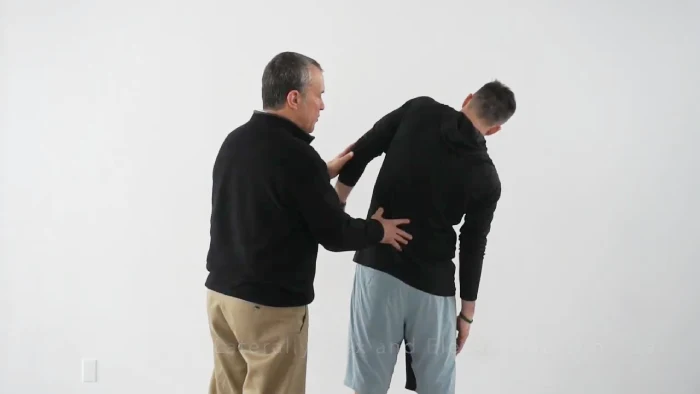If you’ve ever experienced a sharp and excruciating pain in your ribs while taking a deep breath, you might have suffered from an intercostal muscle strain. This injury is common and can affect anyone, regardless of whether you’re an athlete or a regular person performing a simple task.
However, the good news is that there are ways to manage the discomfort and get a good night’s rest while healing. Finding the right sleeping position that reduces pressure on your damaged muscles is one of the best things you can do.
Also, you can support your upper body with pillows, practice deep, slow breathing, and avoid lying flat on your back. Get the sweet relief of a restful night’s sleep as your intercostal muscles heal. The following post will provide insight into how to achieve that goal.
How to Fall Asleep With Intercostal Muscle Strain: Top 6 Expert Advice
Having an Intercostal strain can make even the simplest tasks, such as sleeping, uncomfortable. Take care of yourself to get back to feeling your best and getting restful sleep again. Some strategies you may want to consider include:
ONE: Finding the Right Position
Choosing the right position is crucial for a good night’s sleep with an intercostal muscle strain. Avoiding any strain on the affected muscle is important. One recommended position is sleeping on the back with knee support, which can help alleviate pain and pressure.
Another position is sleeping on the unaffected side with a pillow between the knees, which can reduce tension in the strained muscle.
TWO: Supporting Your Upper Body
Properly supporting your upper body can reduce pressure on the intercostal muscles and make breathing easier. It is recommended to prop yourself up on a comfortable angle or sleep in a reclining position to alleviate discomfort. Doing this reduces pressure on the strained muscle and promotes healing.
THREE: Practice Deep, Slow Breathing
Deep, slow breathing can help relax the intercostal muscles and improve overall comfort. Breathing in deeply through the nose, filling the lungs, and slowly exhaling through the mouth can effectively promote relaxation and reduce pain.
Deep breathing techniques before bed can help you get a better night’s sleep.
FOUR: Avoid Lying Flat
Lying flat can increase intercostal pressure and worsen the pain. Maintaining a slight elevation while sleeping can help reduce this pressure and promote healing. Adding extra pillows can help create a comfortable angle and improve sleep quality.
FIVE: Use Pain Medication
Over-the-counter pain relievers, such as gabapentin as well as anti-inflammatory medications, can provide some relief. However, consulting a healthcare professional before taking any medication is important. Ensure the medication is appropriate for your condition and check for interactions with other existing medications.
SIX: Apply Heat or Cold Therapy
Applying heat or cold therapy reduces pain and inflammation in the affected area. Using a heating pad or cold pack for 15-20 minutes at a time, multiple times a day, can help promote healing and alleviate discomfort.
Be sure to protect your skin by using a cloth or towel while applying either therapy. Before sleep, it is recommended to apply heat therapy as this will help relax the muscle and promote better sleep.
How Does Intercostal Muscle Strain Occur?
A strain of the intercostal muscles can leave you feeling sore and exhausted, impacting your ability to perform daily tasks or even get a good night’s rest. But how does it occur? Here are some possible reasons:
Sudden Increase In Physical Activity or Exertion: Strains of the intercostal muscles occur when sudden and strenuous physical activity occurs. This may include pressure on the chest and upper body, heavy lifting, twisting of the upper body, or sudden jerking movements.
Direct Trauma: A fall or car accident may strain the intercostal muscles. The impact can cause a strain on the muscles, leading to rib pain and difficulty breathing. It is important to seek medical attention after such an incident to rule out any serious injuries.
Sports Injuries: Contact sports like football and hockey can strain intercostal muscles. Blows to the chest area can put a strain on the intercostal muscles, leading to pain and discomfort. Athletes need to wear appropriate protective gear to prevent such injuries.
Poor Posture: An improper posture can lead to an injury to the intercostal muscles. It is essential to maintain a good posture to prevent upper back pain. Pain is described as a sharp, burning pain spreading to the neck and shoulder.
In most cases, this pain is intermittent and can be triggered by certain movements.
Other Causes: A muscle strain in the intercostal muscles is rare but can be caused by coughing or sneezing. Underlying medical conditions like fibromyalgia, osteoporosis, or arthritis may also lead to intercostal strains.
Does It Take Long For The Intercostal Muscle Strain to Heal?
Depending on its severity, a strain of the intercostal muscles usually takes around four to five weeks to heal. However, it’s imperative to consider that the healing process may differ for individual cases. Other factors, such as the patient’s age, lifestyle, and overall health, could affect recovery.
It’s crucial to seek professional medical advice from a healthcare provider to receive personalized guidance and relevant treatment options based on your specific circumstances. Your doctor may recommend physical therapy, stretching exercises, medications, and other pain relief and healing interventions.
Alongside medical attention, resting properly, following a healthy diet, and staying hydrated may also aid recovery. Remember, listening to your body and avoiding activities that may aggravate the strain and prolong the healing process is vital.
Get Better Sleep to Heal from an Intercostal Muscle Strain
Getting the proper amount of sleep is crucial for maintaining good health and well-being. Sleeping becomes even more important when you are recovering from an injury, such as a strained intercostal muscle.
Finding the ideal sleeping position that aligns your spine while supporting your upper body can help ease pain and improve the quality of your sleep.
Nobody likes to miss out on a good night of sleep. Try deep breathing exercises when lying in bed at night to ensure you get some rest and help your body recover faster. This will enable better oxygen circulation throughout the body.
Avoid sleeping flat, as that can add more discomfort during recovery time. Adding these tricks to your routine should help you get more shuteye and heal faster.




